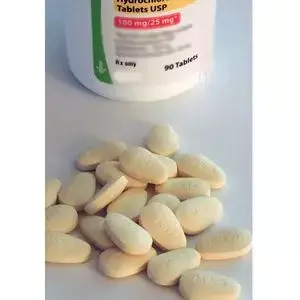- Home
- Medical news & Guidelines
- Anesthesiology
- Cardiology and CTVS
- Critical Care
- Dentistry
- Dermatology
- Diabetes and Endocrinology
- ENT
- Gastroenterology
- Medicine
- Nephrology
- Neurology
- Obstretics-Gynaecology
- Oncology
- Ophthalmology
- Orthopaedics
- Pediatrics-Neonatology
- Psychiatry
- Pulmonology
- Radiology
- Surgery
- Urology
- Laboratory Medicine
- Diet
- Nursing
- Paramedical
- Physiotherapy
- Health news
- Fact Check
- Bone Health Fact Check
- Brain Health Fact Check
- Cancer Related Fact Check
- Child Care Fact Check
- Dental and oral health fact check
- Diabetes and metabolic health fact check
- Diet and Nutrition Fact Check
- Eye and ENT Care Fact Check
- Fitness fact check
- Gut health fact check
- Heart health fact check
- Kidney health fact check
- Medical education fact check
- Men's health fact check
- Respiratory fact check
- Skin and hair care fact check
- Vaccine and Immunization fact check
- Women's health fact check
- AYUSH
- State News
- Andaman and Nicobar Islands
- Andhra Pradesh
- Arunachal Pradesh
- Assam
- Bihar
- Chandigarh
- Chattisgarh
- Dadra and Nagar Haveli
- Daman and Diu
- Delhi
- Goa
- Gujarat
- Haryana
- Himachal Pradesh
- Jammu & Kashmir
- Jharkhand
- Karnataka
- Kerala
- Ladakh
- Lakshadweep
- Madhya Pradesh
- Maharashtra
- Manipur
- Meghalaya
- Mizoram
- Nagaland
- Odisha
- Puducherry
- Punjab
- Rajasthan
- Sikkim
- Tamil Nadu
- Telangana
- Tripura
- Uttar Pradesh
- Uttrakhand
- West Bengal
- Medical Education
- Industry
Common BP drugs don't induce depression, some may alleviate it: AHA Study

DALLAS: Researchers in Denmark have found in a new study that among the 41 most common blood pressure medications, none of them raised the risk of depression.The study also found that some high blood pressure medications lowered the risk of depression.
These findings may help guide medical professionals in selecting the right hypertension medication, particularly for people with a personal or family history of depression.The study ha been published in the journal Hypertension, an American Heart Association journal.Depressioniscommon among patients with high blood pressure (also called hypertension), heart disease and stroke, and this is the first study to systematically investigate whether individual blood pressure medications might influence the risk of developing depression.
"It was highly surprising that none of the 41 most-used anti-hypertensives was associated with increased risk of developing depression and that some within each of the three classes of anti-hypertensives showed protective effects against depression," said Lars Vedel Kessing, M.D., D.M.Sc., lead author of the study and professor of psychiatry at the Psychiatric Center Copenhagen and the University of Copenhagen, Faculty of Health and Medical Sciences in Denmark.
Researchers analyzed real-life data on more than 3.7 million adults who took any of the 41 most-commonly prescribed high blood pressure medications, as reported in health records across several Danish health registries from 2005 to 2015. Thirty-seven of these medications are approved for use in the U.S. by the U.S. Food and Drug Administration. Patients who had been diagnosed with depression or previously prescribed antidepressants were excluded.
The four main categories of blood pressure-lowering medications were reviewed: angiotensin agents (angiotensin converting enzyme inhibitors, ACE inhibitors and angiotensin II receptor blockers, or ARBs); calcium antagonists; beta-blockers; and diuretics.
The analysis found:
- None of the 41 most common high blood pressure medications increased the risk of depression.
- Nine medications – a few within each category - significantly lowered depression risk: 2 of 16 angiotensin agents, 3 of 10 calcium antagonists and 4 of 15 beta-blockers.
- Diuretic medications showed no impact on depression risk.
The nine individual high blood pressure medications found to significantly lower depression risk are enalapril and ramipril (angiotensin agents); amlodipine, verapamil and verapamil combinations (calcium antagonists); and propranolol, atenolol, bisoprolol and carvedilol (beta-blockers). All nine are approved for prescribing in the U.S.
"It is possible that the mechanism involved in decreasing the risk of depression is the anti-inflammatory effect among these nine medications," Kessing continued. "In the future, it will be important to compare the inflammatory properties of these nine hypertensives that lowered depression risk." (Low-grade inflammation is common in high blood pressure and heart disease, as well as in depression.)
"Our study's findings could help guide prescriptions for patients with high blood pressure who are at risk of developing depression, those with prior depression or anxiety, and patients with a family history of depression," said Kessing. "However, if a patient is doing well with their current blood pressure prescription, there is no reason to switch. If depression develops, a medication switch may be considered to one of the nine anti-hypertensive medications that lowered depression risk."
The findings of this study are likely generalizable to other populations. However, limitations of the study include it relied on a clinical diagnosis of depression, that it was not a controlled clinical trial that randomly selected which medication patients receive, and that the impact on depression risk was analyzed for each high blood pressure medication individually; they were not tested side by side or as combinations of one or more other antihypertensive medications.
For further reference log on to:
- Available multimedia is on right column of release link - https://newsroom.heart.org/
news/none-of-the-most-common- blood-pressure-medications- increased-the-risk-of- depression-some-lowered-the- risk?preview= 91243883dacaba362efaafa2abb941 32 - manuscript online.
Dr Kamal Kant Kohli-MBBS, DTCD- a chest specialist with more than 30 years of practice and a flair for writing clinical articles, Dr Kamal Kant Kohli joined Medical Dialogues as a Chief Editor of Medical News. Besides writing articles, as an editor, he proofreads and verifies all the medical content published on Medical Dialogues including those coming from journals, studies,medical conferences,guidelines etc. Email: drkohli@medicaldialogues.in. Contact no. 011-43720751


